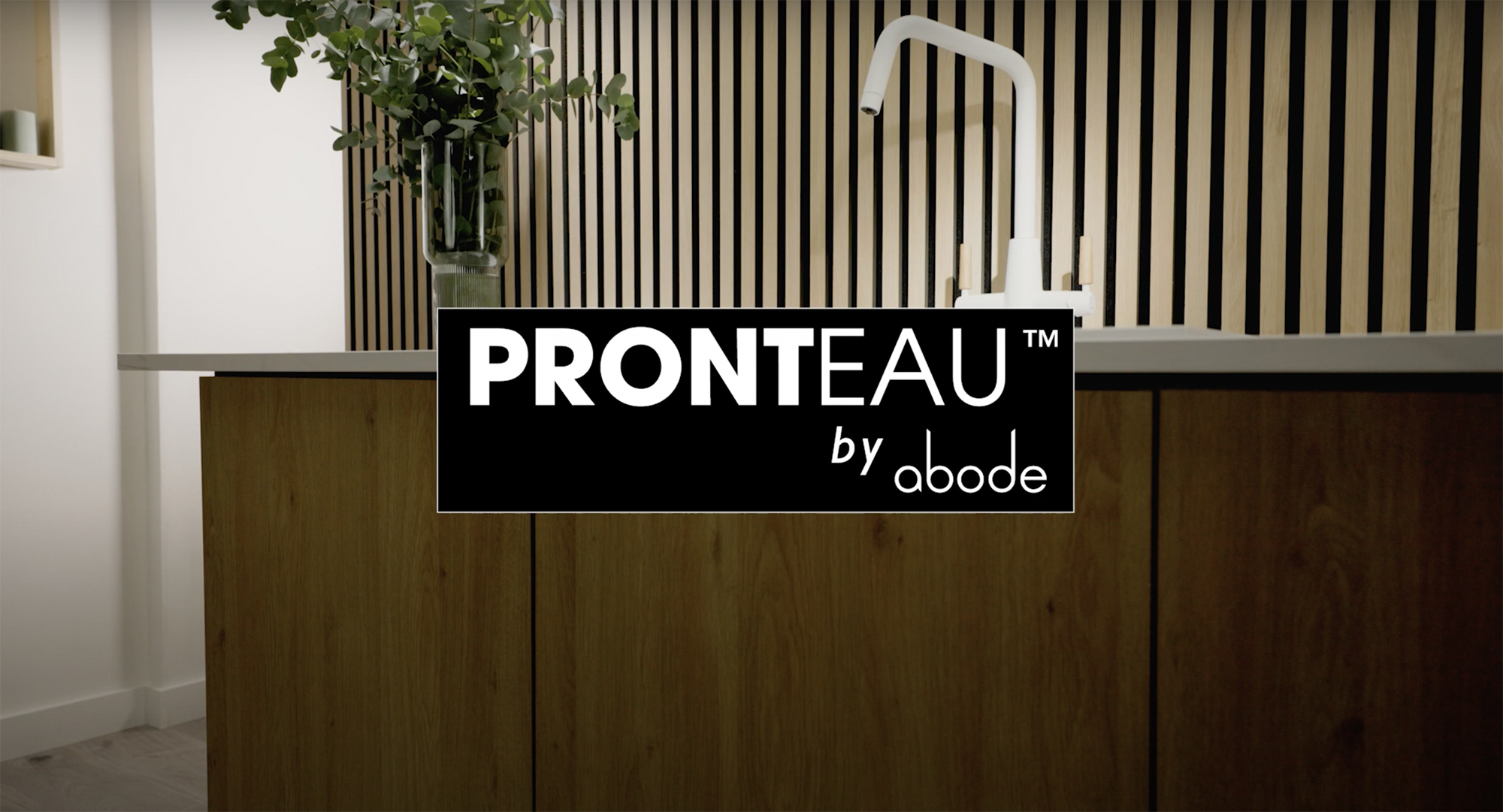Sustainability is playing an ever-greater role in kitchen specification, impacting the choice of worktops for consumers
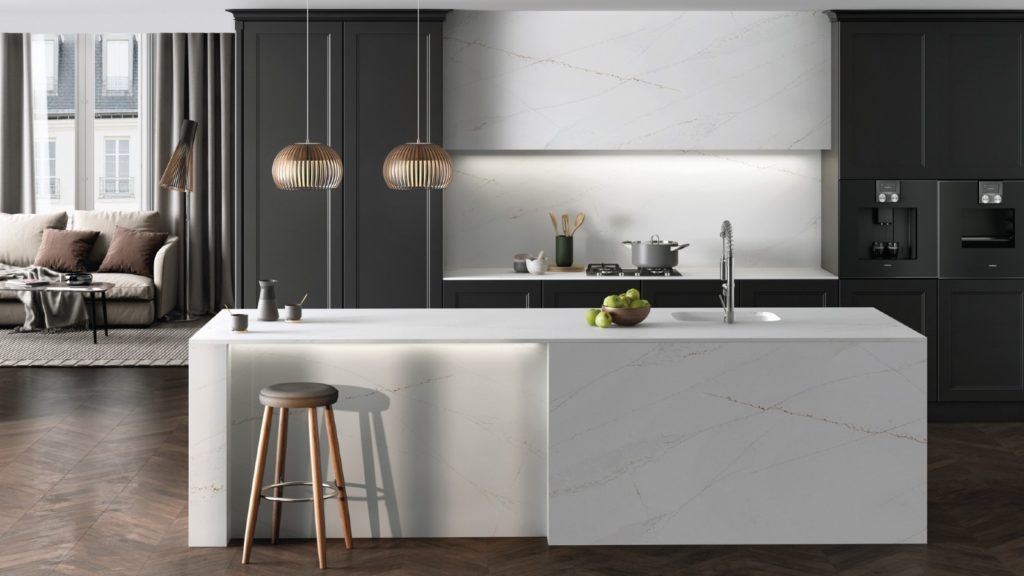
Part of the Silestone by Cosentino brand, Ethereal is a collection of marble-effect patterns made using HybriQ+ technology, with at least 20% recycled materials and produced using 99% reused water and 100% renewable energy.
It wasn’t so long ago the topic of eco-friendly worktop design would focus on niche materials, such as recycled yoghurt pots or bamboo, for an equally select consumer base.
But sustainability has now become part of mainstream conversation, particularly in home design, and is now impacting consumer worktop choices.
Sponsored Video
Business development manager for worktops at IDS Jason Neve comments: “The retail channel, both bricks and mortar and online, is the area most influenced by sustainability.
“Retailers are dealing directly with end consumers who are increasingly tuned into the topic and are making informed choices about their purchasing decisions.”
And commercial director of Brandt Design Julia Steadman says she is finding consumers are more interested in sustainable surfacing: “Over the past two years, we have been finding that our customers are increasingly well-versed in sustainability and are keen to learn about new developments, such as made-to-measure quartz surfaces which mimic the look and feel of marble.”
Sustainable worktop materials
And there are a range of sustainable materials consumers can choose from. Jason Neve of IDS points out: “In the worktop market, we are seeing brands adopting more sustainable manufacturing methods across all types of material, but wood worktops have been a torch bearer for sustainability for a long time.”
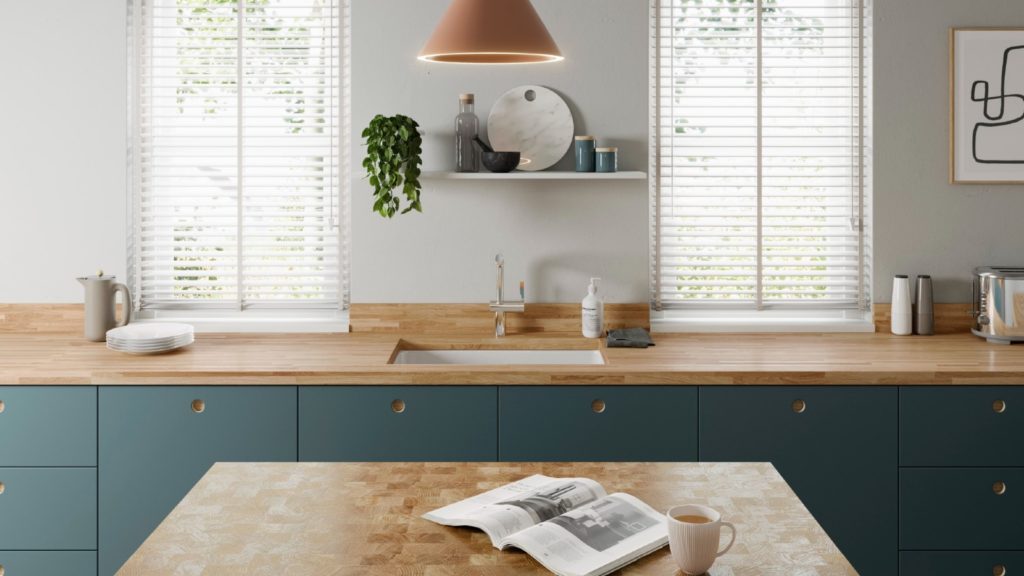
The Tuscan Solid Wood Worksurface range, from IDS, features Oak, Walnut, Ash and Beech, all of which are FSC and PEFC certified timbers, as well as Iroko which complies with EU Timber Regulations.
He points to its Tuscan Solid Wood Worksurface range featuring specified with FSC and PEFC certification which guarantees the timber is harvested from managed forests.
Whereas, Julia Steadman of Brandt Design states quartz is popular as it has a smaller carbon footprint than granite.
In fact, Cosentino recently introduced Hybriq+ technology to create its Silestone Ethereal collection, which uses at least 20% recycled material and made using 100% renewable energy and 99% reused water.
This is on top of its first carbon neutral Silestone collection Sunlit Days and Dekton which has achieved carbon neutral for its entire lifespan.
Longevity reduces waste
Interestingly, it’s not simply the type of material and production which deems a worktop to be sustainable but the longevity of the surfacing, reducing the need for replacement from damage.
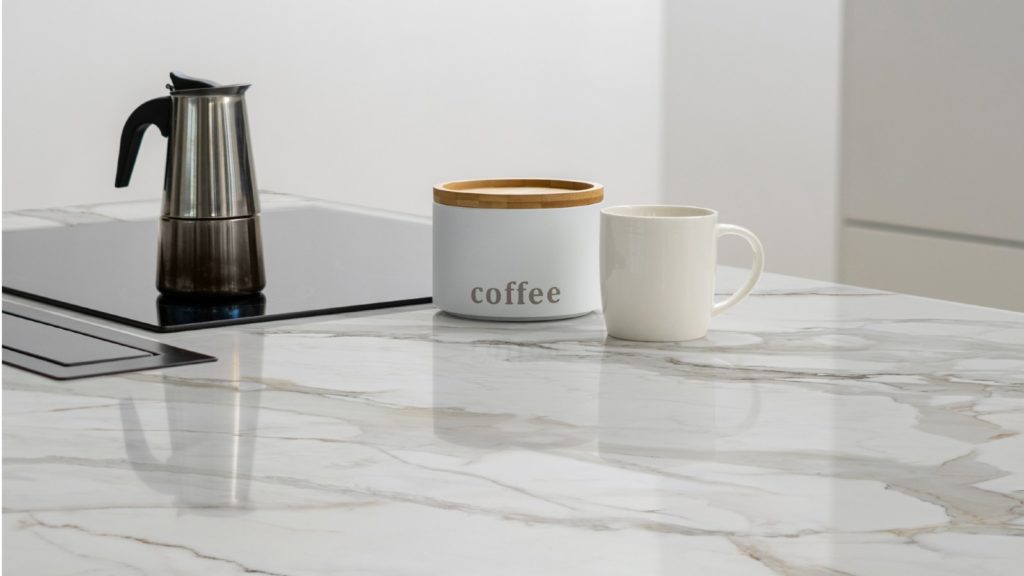
Created in collaboration with interior designer Nina Magon, Dekton by Cosentino has introduced Onirika which has been inspired by marble patterns.
Marketing manager at Cosentino UK Laura Davie also states: “When it comes to choosing surfacing for a kitchen or bathroom – be that worktops, cabinetry, splashback, flooring – homebuyers are looking to materials with great sustainability credentials and extensive warranties – as this will reflect the longevity of the product.
“For example our hero surfaces Silestone and Dekton both come with 25-year warranty.”
And Caesarstone has recently introduced a third party verified Declare Label for its worktops, which states the quality of the materials used in the production of its surfaces.
In addition, the manufacturer also provides a Lifetime Warranty across its range of quartz and porcelain surfaces.
VP marketing of Caesarstone Jonathan Stanley agrees consumers are buying more consciously choosing products with longevity and quality in mind, adding: “As we see this continued movement towards making more environmentally conscious choices, we have seen a growing interest in our Lifetime Warranty, offered on all our indoor residential worktops.”
Greater retail profits
However, does this mean sustainable worktops command a price premium and will that benefit kitchen retailers by offering a higher profit margin?
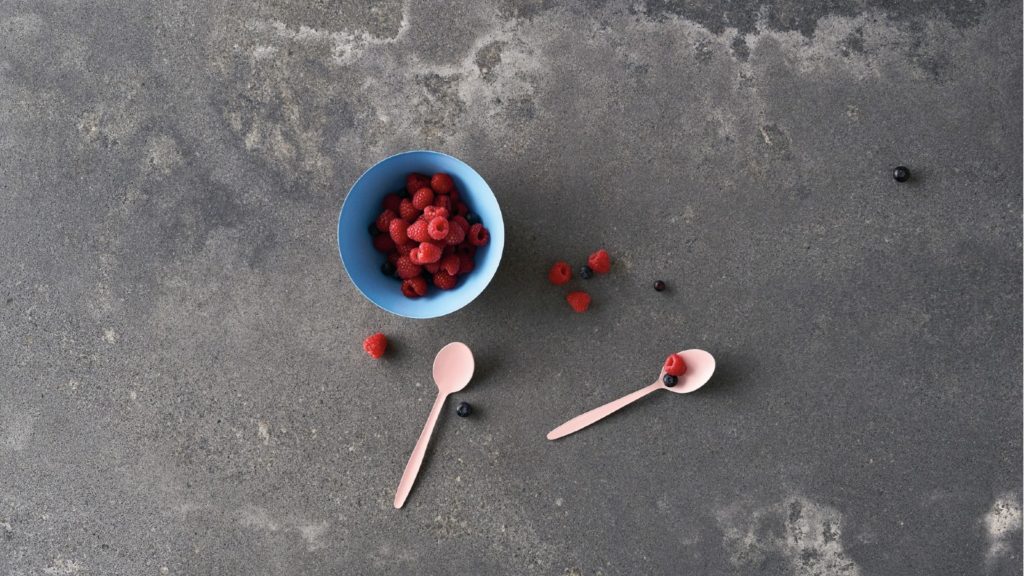
Part of the Metropolitan Collection of quartz worktops, by Caesarstone, 4033 Rugged Concrete features gradients of grey with a white haze pantina and a textured finish.
While Jason Neve of IDS says price premiums tend to be based on material choice, not the sustainability credentials, Jonathan Stanley adds sustainability requires research and investment in technologies and people “so there can be a price premium but it needn’t be excessive.”
Julia Steadman explains sustainability can offer retailers higher margins but if the worktops are from a trusted brand: “There can be potential for a higher profit margin as consumers are reassured by brand names they know and trust, in combination with tried and trusted warranties.
“This makes it easier for a big-ticket purchase to be regarded as both excellent value for money over time and reflecting well on a brand’s eco-credentials in terms of its use of materials to create a long-lasting product.”
But now with the UK heading towards a prolonged period of recession, as warned by the Bank of England, will it mean the pillars of sustainability, quality and longevity, will take a back seat to price?
Jonathan Stanley of Caesarstone says no: “When economic concern is high, consumers want to know that the choices they are making will be a wise investment. This current economy and environmental concerns are pushing the flight to quality products in the specialist kitchen and bathroom market.”
And his view is echoed by head of sales at Formica and Wex Trade Ryan Smith, who adds: “Sustainable materials can be more expensive, but by focusing on the durability of the worktop, you can ultimately become more sustainable.
“As a distributor and manufacturer, this means we are well placed to be able to get across how making an investment in the longevity of our work surface will result in improved durability and overall life cycle.”
Meeting all budgets
With worktop manufacturers placing more emphasis on sustainability and distributors choosing suppliers with sustainability as part of their criteria, what does it mean for the market?
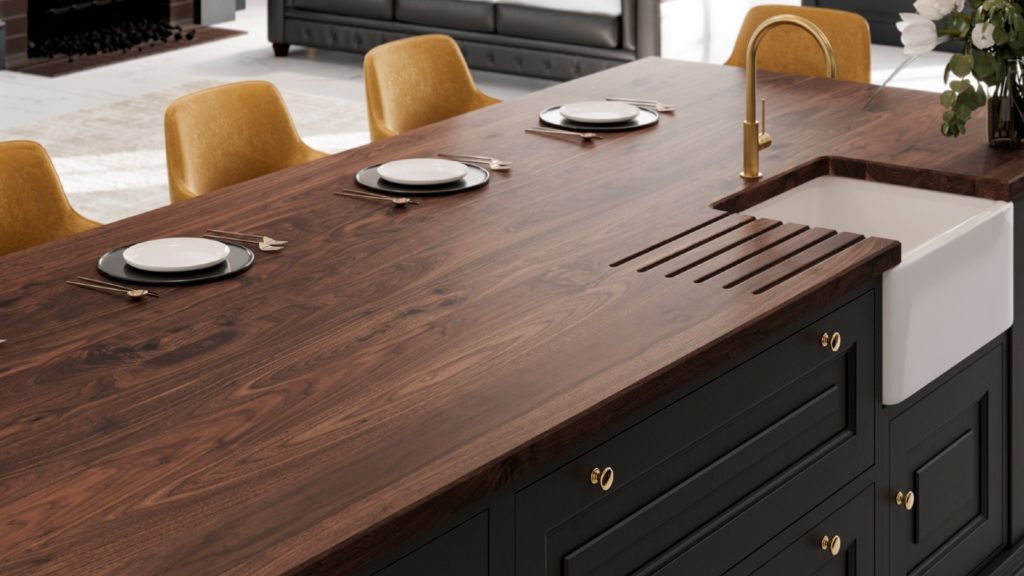
Wex Trade De Terra solid wood worktops are made using Oak, Prime Oak, Walnut and Iroko harvested from sustainable forests.
Jonathan Stanley says it a journey for a brand, explaining: “Sustainability is not a short-term strategy and no brand is ever likely to be ‘done’. It’s an ongoing process of improvement.
“Within the kitchen and bathroom specialist sector, we all need to be supporting and promoting those brands that are genuinely interested in this.”
While, entrenched in the premium worktop sector, is it likely that sustainability will become a core value for all sales?
Julia Steadman is hopeful that sustainability will become a greater focus, regardless of budgets: “Going forwards, I imagine that the conversation about sustainability will become even more nuanced as consumers demand increasing transparency in terms of provenance and production.
“Given the industry’s commitment to innovation and new technology, I would like to think sustainable worktops and kitchen products, in general, will become even more widely available at all price points in the next two years.”
